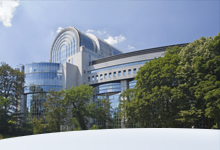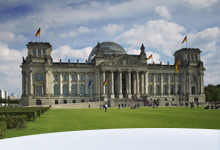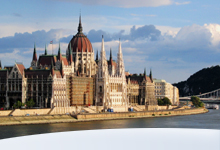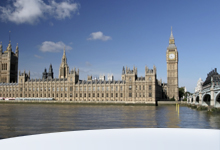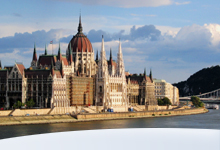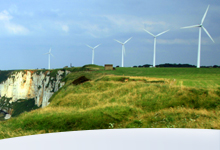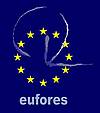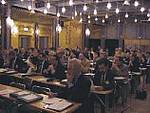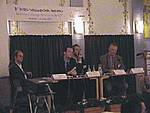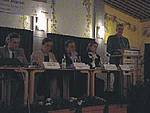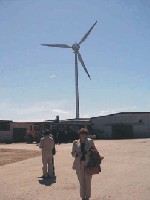Become a member
Join EUFORES here.
III. Inter-Parliamentary Meeting
Gotland, Sweden, 8-10 June 2001
Background Information
Renewable energy sources (RES) have come to constitute a major issue within the EU energy scheme. Such a development has several key milestones:
- EU Energy policy is presently undergoing key developments. Crucial issues such as the liberalisation of energy markets, the discussion of practical developments to achieve the targets for renewables and the and the recent initiation by the EC of the discussion of security of supply are, more than ever before, raising the issue of common EU energy policy. Further legislative initiatives as well as market regulation and international negotiations are nowadays under discussion: The Directive on the promotion of renewable sourced electricity in the internal electricity market, the Guidelines on Environmental State Aids, the proposed Directive to modify the previous ones on the internal market for electricity and natural gas, the uncertainties raised concerning the achievement of the Kyoto Protocol objectives on greenhouse gas emissions, as well as the presentation of a Sustainable Development Strategy by the Swedish Presidency, etc.
- The initiative of the European Commission (EC) to develop a strategy for RES in the EU has its origin in a report of the European Parliament (EP), approved in June 1996, asking for the development of an Action Plan that includes clear objectives, in line of the proposal of the Madrid Conference of March 1994 (supported by the EP and the EC).
- As a consequence, the EC adopted on November 1997 the White Paper that sets for renewables the common EU objectives and strategy, ambitious but achievable. This key document included an Action Plan and Campaign for Take-Off (CTO), detailed in the working paper of the EC of April 1999.
- During the last Energy Council of 5 December 2000, unanimous political agreement was reached on a Directive for the promotion of electricity from RES on the internal electricity market. The Directive is a key element within the energy liberalisation process that aims at further harmonisation of the EU electricity market.
- Also in line with the draft European Parliament and Council Directive on the development of RES, the Commission has adopted in December new guidelines setting out the conditions under which Member States may grant aids to promote environmental protection. The Commission policy on environmental protection is based on the 'polluter pays' principle, and this means the costs of protecting the environment must be borne by the firms causing the pollution. This implies also the permission of support schemes that allow for mechanisms that compensate the external costs while these are not internalised.
However, results of different national and regional initiatives in terms of market penetration have been quite divergent. The RES – E Directive gets now a compromise to build a legal protection for the various Member State schemes, allowing for subsidiarity, but also setting deadlines for an EC proposal for a harmonised EU-wide compensation system.
Finally, the compromises agreed by the EU in Kyoto (December 1997), and mounting evidence of the effect of human activity on climate change, require a huge effort to reduce greenhouse emissions 8% between 1990 and 2008/2012. Again, renewables and efficiency constitute the most effective measure, and of the few viable ones, to fulfil these compromises.
Within this framework, a high-level dialogue between Members of the European Parliament (MEPs), national and regional Parliaments (MPs), is important to increase their awareness on recent developments in energy and, more specifically, renewable energy sources (RES), yielding a better comprehension of the aims, priorities, tools and best available practices.
Aims of this Meeting
- To present to the Members of the European Parliament, and National and Regional Parliaments throughout the EU, the development process and options for RES-related polices;
- To discuss the development of the EU energy policy, and the contribution of RES, with special regard to the consequences of the Kyoto compromises of the EU and the need of guaranteeing security of supply;
- To contribute to the debate on the present situation of the energy markets liberalisation in the EU, as well as the implications of the new guidelines on state aids;
- To discuss possible legislative initiatives aimed at following-up and achieving the aims of the EU Strategy’s targets and instruments, in order to allow for a true implementation of its concepts;
- To highlight the success stories on the deployment of RES, especially the political and market measures that have been successfully put in place, and those that are still needed;
- To discuss RES regarding other related policies (Agriculture, Environment, etc);
- To raise the awareness on the insular problems faced by similar EU regions;
Dissemination activities
Further to involvement of policymakers of MS in EU targets and of its Strategy's development process, the impact of a meeting of this nature is extremely high. This was fostered by the presence of top level officials and elected representatives, and further amplified by the invitation of an ample selection of media representatives and thorough media releases and follow-up:
- Previous to the meeting, press conferences and releases and additional information sent to media and to related interest groups, and regular contacts with the Committees responsible for energy of EP, national and regional Parliaments, including information summaries and specific invitations to key Members;
- During the meeting, press conferences, informative press releases, interviews with top-level MPs , with press facilities and a contact person available
- After the meeting, EU-wide Press releases with the results and highlighting key conclusions and issues such as the response of attendees, follow-up of the impact in media of the event and its results, and press conference in the EP (Brussels)
Organisers
The Meeting is organised by EUFORES and SVEBIO (Swedish Bioenergy Association). The Ministry of Industry, Employment and Communications of Sweden, the Swedish National Energy Administration, the Gotlands Kommun and the European Commission - ALTENER II Programme, support it.
